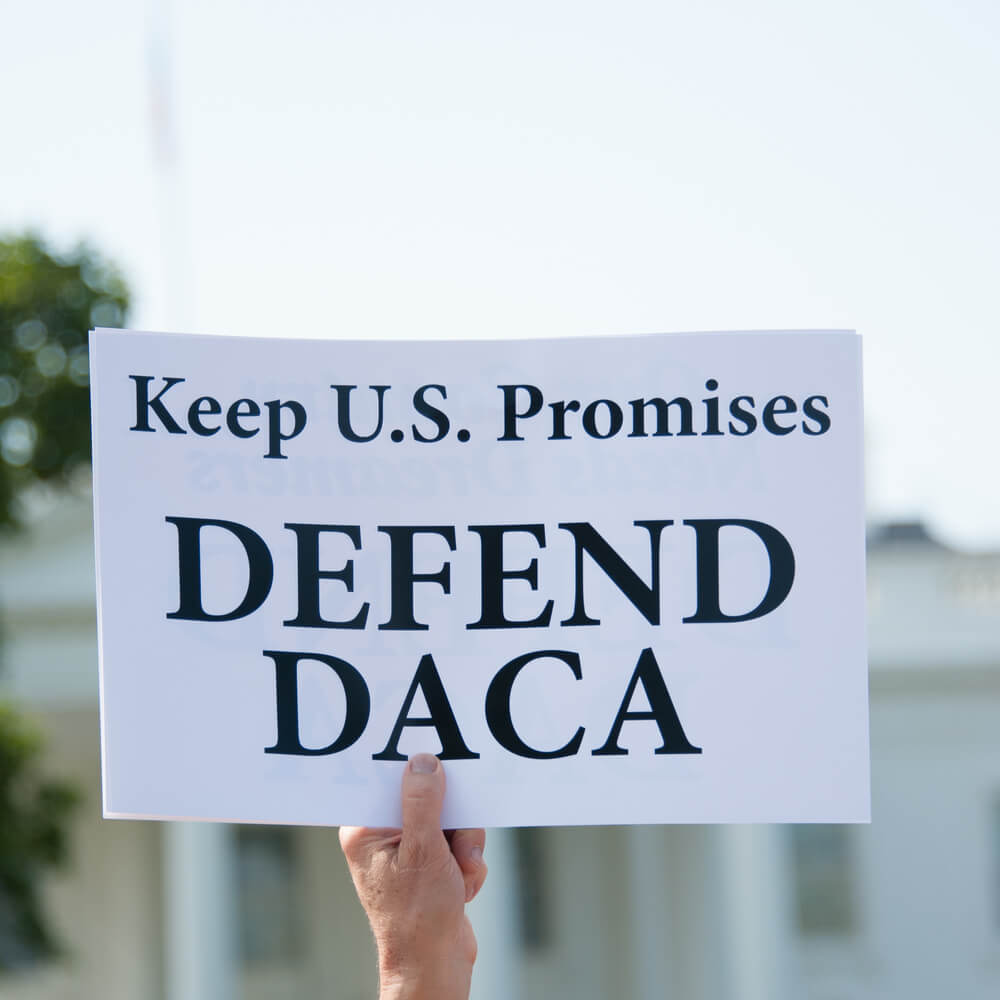DACA—Frequently Asked Questions
By Julie Sparks in Uncategorized | on 2022-12-14 22:36:54
Frequently Asked Questions – DACA
DACA is an acronym that stands for Deferred Action for Childhood Arrivals, and is a policy put in place by President Barack Obama to protect about 800,000 young people — known as “DREAMers.” These are individuals who were brought or entered the United States unlawfully as children. Although the program does not grant these individuals official legal status or a pathway to citizenship, the program does allow the individuals to apply for a social security number, a driver’s license, and a work permit. The individuals who qualify can also not be deported while under the program.
Anyone who needs assistance with a DACA-related matter should reach out to an immigration lawyer near you as soon as possible.
Unfortunately for DREAMers and their families, the program has been under attack by those who do not wish to have it in place. The policy was challenged in federal courts, and President Donald Trump tried to completely do away with it.
On October 5, 2022, the Fifth Circuit Court of Appeals affirmed a lower court’s ruling in July 2021 that DACA is unlawful. However, the Court of Appeals remanded the case to the district court to consider the program under the new 2022 DACA regulations that were set to go into effect on October 31, 2022. The district judge extended his injunction to block the Biden administration from implementing the new DACA rule on October 31st.
FAQS
Because of these legal challenges to DACA, there are many questions that arise, and in this blog, we are answering some of them.
I am currently registered under DACA. How does the latest Court ruling affect me?
Your DACA registration and work permit are valid if you are currently registered. Your social security number is permanent and valid, so it will always remain your number regardless of the outcome of DACA litigation. Everything else remains the same, pending the outcome of the litigation. However, make sure you renew your DACA status when it is time to do so. Consider renewing your DACA, ideally with assistance from an immigration attorney.
I am on DACA now, which is about to expire. Can I still renew?
Yes. If you have DACA now or you have had it in the past, you can still renew. The USCIS suggests that you submit your renewal application between 150 to 120 days from the expiration date of your current DACA.
My DACA has expired. Can I still renew it?
Yes, but only if you are within one year from the time your DACA expired. If it has been more than one year since the expiration of your DACA, then you can still request DACA, but your application will be treated the same as a first-time or initial application, meaning nothing will be done about it until the DACA litigation ends.
Are first-time DACA applications automatically rejected now?
No. USCIS will still accept initial or first-time DACA applications, but the agency cannot grant the applications at this time because of the district court order and the Court of Appeals’ opinion that affirmed the order. The expectation is the program will somehow survive all these challenges, and if it does, then those applying for the first time since the judge’s order can ultimately get the benefits.
Can I file for DACA online?
Yes, you can file for DACA renewal online. If you are a current DACA recipient, you must first create a USCIS online account to file Forms I-821D (DACA), I-765 (application for employment authorization), and I-765WS online. The online USCIS account provides a quicker method of submitting immigration forms, paying fees, and tracking the status of your USCIS application. However, this only applies to DACA renewal requests. Initial DACA requests are made by mail or courier. It is to your benefit to use the services of a USCIS-accredited organization or an immigration attorney when submitting any immigration documents.
Can I apply for DACA Advance Parole?
Yes. You can still apply for Advance Parole if you are already in DACA. However, Advance Parole is only granted for humanitarian, educational, and employment purposes. For example, if you are traveling to visit a sick relative, you can be given humanitarian Advance Parole. If you need to travel outside the United States to participate in a study abroad program, you can be given an education Advance Parole, or if your travel is work-related, such as attending a conference or training, you can be given a work-related Advance Parole. In all these situations and others, it is best to have an experienced DACA immigration lawyer assist you.
What options do I have beyond DACA?
As a DACA recipient, you must explore and find a long-term, permanent solution to your immigration status because DACA, even if it survives current legal challenges, is a temporary solution. DACA itself does not provide legal immigration status; rather, it protects you from being deported and allows you to enjoy certain benefits, such as obtaining a social security number, a work permit, and the ability to travel outside the United States under qualifying circumstances.
Some of the options someone may consider and pursue after DACA include:
- Employment-based permanent residency (green card) for individuals who are covered under Section 245(i) of the Immigration Act. Ordinarily, if you have an employer willing to sponsor you for a green card and you are out of status, the law requires you to complete your green card process in your native country, which has its own set of problems. However, if you are “grandfathered” under a law known as Section 24(i) and you have an employer sponsor, you can process your green card in the US without being required to leave the country.
- Adjustment of Status through marriage to a US citizen. If you get married to a US citizen, you can process and obtain your green card also in the US without being required to leave the country as you otherwise would.
- U-Visa for crime victims who assist law enforcement. If you are a victim of crime and have assisted law enforcement, you can apply and obtain a U visa.
- Asylum. If you are a victim of past persecution or fear being persecuted if you are forced to return to the country you were born in, you can apply for asylum.
Speak with a DACA immigration lawyer today
If you are on DACA or believe you or a loved one qualifies to receive DACA benefits, contact J. Sparks Law, PLLC, today and schedule a consultation to discuss your case.

Julie Sparks is Board-certified by the Texas Board of Legal Specialization in Immigration and Nationality Law, one of a few such attorneys in Texas. After 15 years of practice in this field, she has represented immigrants from more than 70 countries.
Ms. Sparks is a member of the Texas Bar Association and the American Immigration Lawyers Association (AILA). Julie has also been a featured speaker at Southwestern Law School and at the national 2015 AILA Fundamentals Conference.
- 15 years of practice in this field.
- She also founded and managed a non-profit organization representing indigent immigrants seeking asylum.
- Julie is a former immigration law instructor at the Pepperdine School of Law in Malibu, California, and California State University – Los Angeles.




